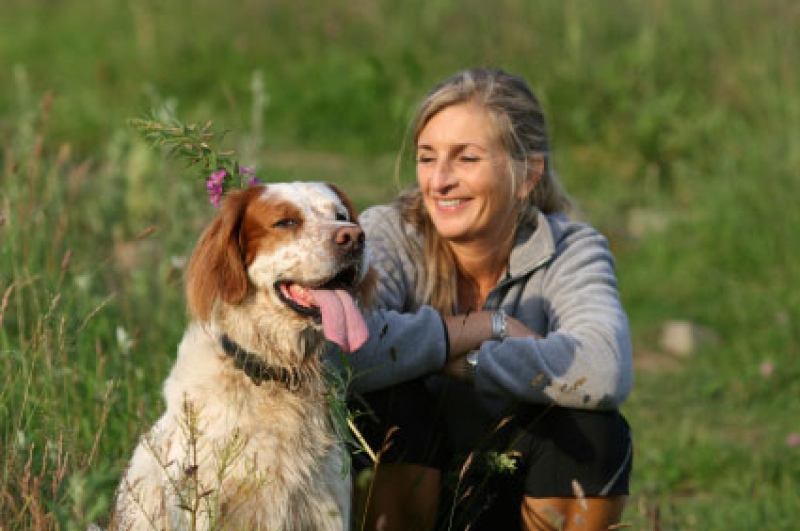Whether they occur within a species or between them, relationships are much the same in what they require to grow and flourish, and books about improving your relationship with a partner, child or friend offer very similar advice. The ideas that follow could also apply to other close bonds, but in this case, they refer specifically to improving your relationship with your dog.
- Spend time together. A relationship is about being with one another and sharing experiences, so time spent together strengthens it, especially if you spend that time in enjoyable ways.
- Communicate clearly. Misunderstandings and confusion are the enemies of good relationships, so be as clear as you can when you communicate with your dog. Be consistent with your training signals. Since dogs tend to learn visual signals faster than vocal cues, use the former when possible. Dogs pay attention to what we do more than to what we say, which means that we should attend to what we do when we communicate with them. You’ll feel closer when there’s greater understanding between you.
- Put a little love into their food. The way to many a dog’s heart is through the stomach, and preparing healthy, tasty food for your dog shows you care. You can choose to cook for your dog or simply focus on providing the best nutrition in the most delicious way possible.
- Train your dog. Well-trained dogs are allowed greater freedom. If they come when called, they get to spend more time off leash. If they don’t go for the food on the table, they can stay nearby during meals. Training also reduces frustration because when you ask your dog to do something he’s been taught to do, he knows what you want.
- Be playful. There’s a reason I called my last book Play Together, Stay Together. Scientists have observed that across a variety of species, parents who play with their children have the closest relationships with them, and this also seems true in relationships between people and dogs. Playing games and having fun strengthen your bond.
- Remain calm. Losing your temper, yelling or freaking out in any way upsets everyone in the vicinity of the emotional storm, even if it doesn’t have anything to do with them. No matter what’s going on, exude a sense of tranquility so your dog can count on you to keep your cool.
- Learn more about canine behavior, especially body language and facial expressions that indicate stress. When you can identify the signs that your dog is anxious or scared, it will be easier for you to protect or remove your dog from situations that make him uncomfortable. If your dog can count on you to keep him safe, the trust between you will be better and so, therefore, will your relationship. There are a number of excellent books and DVDs on this subject; look for the works of Patricia McConnell; Suzanne Hetts, Daniel Estep and David Grant; and Barbara Handelman.
- Pay attention to your dog’s likes and dislikes. Knowing your dog’s preferences, favorite games and foods means that you can give him what he really wants and be the source of all things wonderful. Similarly, keep track of what your dog can’t stand. A good starting place is to know the things that most dogs find unpleasant: head pats, citrus or strong floral scents, loud noises, being stared at, being dressed up in clothes that impede their ability to move and being hugged.
- Touch your dog. There is strong evidence that physical contact such as grooming and petting lowers stress in shelter dogs, which is measured by reductions in both heart rate and the stress hormone cortisol as well as by an increase in the anti-stress hormone oxytocin. This has led researchers to believe that physical contact plays a role in enhancing the bond between people and dogs. Focusing on your relationship with your dog is arguably the most important aspect of living with a friend of the canine persuasion. After all, it’s not a desire to help the economy by spending money at the vet and the groomer or to ensure that our clothes are covered in fur that drives us to have dogs. Rather, we love dogs as friends and as family members, and being with them enhances our life in unique ways. It’s all about the relationship, which is worth improving no matter how magnificent it is already.
